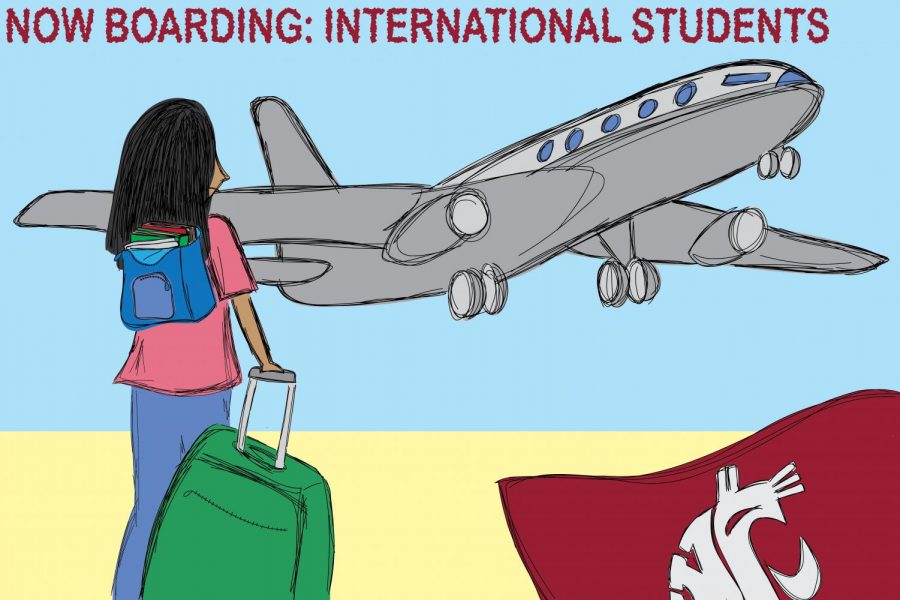Remote learning remains option for students unable to return to campus
Students encouraged to consult with academic advisers to navigate accommodations; Office of International Programs will help students receive vaccine and visas
International students should reach out to WSU’s Office of International Programs if they are concerned about returning to in-person learning.
May 20, 2021
Asynchronous learning options will remain available to WSU students who are not returning to campus for in-person classes this fall.
WSU recommends students who are unable or hesitant to return to campus this fall to consult with their academic adviser, Phil Weiler, WSU vice president for marketing and communications, said. Advisers will work to ensure students’ needs are met and that they remain on track to graduate.
“Our goal always is to get students graduated,” Weiler said. “We’ll do whatever we can to make sure that we remove any obstacles from [students] being able to get that degree.”
Students who cannot return to Pullman have the option to take classes through the WSU Global Campus or at one of WSU’s four other physical campuses across the state, he said.
Students also have the option to engage in “synchronous virtual instruction” instead of asynchronous instruction. Through synchronous virtual instruction, students can interact with their classmates and instructor(s) at the Pullman campus in real-time from another WSU campus, Weiler said.
International students should reach out to WSU’s Office of International Programs if they are concerned about returning to in-person learning, he said
WSU is accommodating international students who received a COVID-19 vaccine overseas not approved by the U.S. Food and Drug Administration, he said. WSU will accept proof of vaccination as long as the World Health Organization approved the vaccine.
“The whole purpose of our unit is to retain students and help ensure that they have a fantastic experience at WSU whatever study plan level they are at,” said Kate Hellmann, International Student and Scholar Services director.
Hellmann said international students have expressed concerns about travel restrictions, obtaining visas, receiving the COVID-19 vaccine and continuing their education at WSU from a distance.
“What students are concerned about is very much based on their own personal experiences,” she said. “It could be concerns pertaining to a family business that is being used to sponsor the student’s education, the concern[s] could be economic in nature [or the] concern might be pertaining to vaccinations.”
The office will help students get the COVID-19 vaccine upon returning to campus if they cannot get vaccinated in their home country, Hellmann said.
Staff members are currently working alongside the WSU Global Campus, other university departments, academic advisers and students to accommodate those unable to return to campus, she said.
Students in China and India, WSU’s “two largest international cohorts,” are experiencing difficulties obtaining visas, Cody Tornow, lead international student adviser, said.
Both countries are accepting visa applications by emergency appointment only, he said. Approximately 50 percent of embassies and consulates across the globe are either closed or operating solely through emergency appointments.
Tornow said a main focus for the office is working closely with new students who do not have an F1 visa. F1 visas are issued to international students who attend a college or university in the U.S.
Many international students were unable to obtain their F1 visa because of embassy closures and visa processing delays, he said.
International students seeking to meet with an adviser or who want to voice questions and concerns about their fall plans can email [email protected], Hellmann said.
“We’re really trying to assure students that we’re absolutely going to take care of them no matter what their situation is,” she said.









